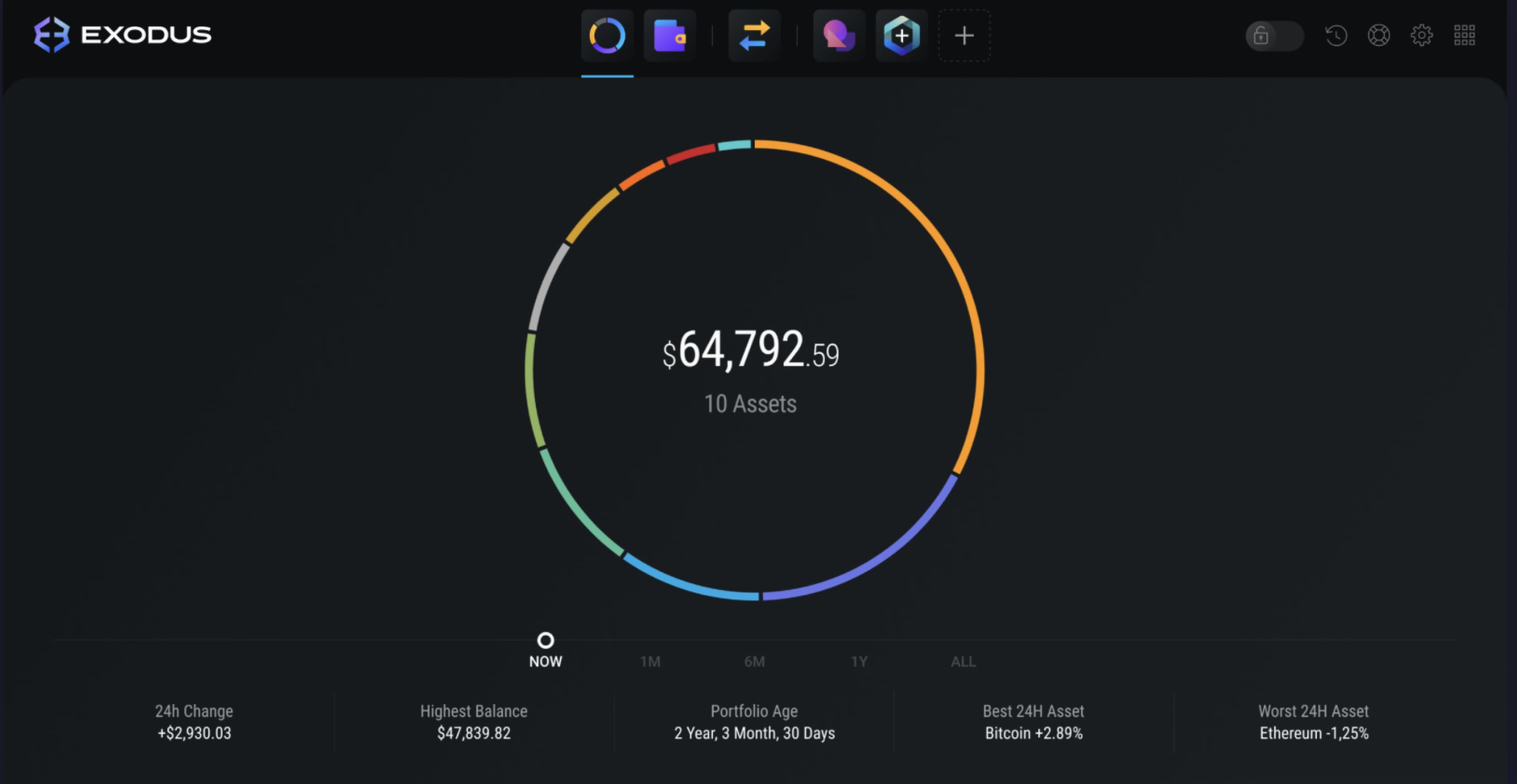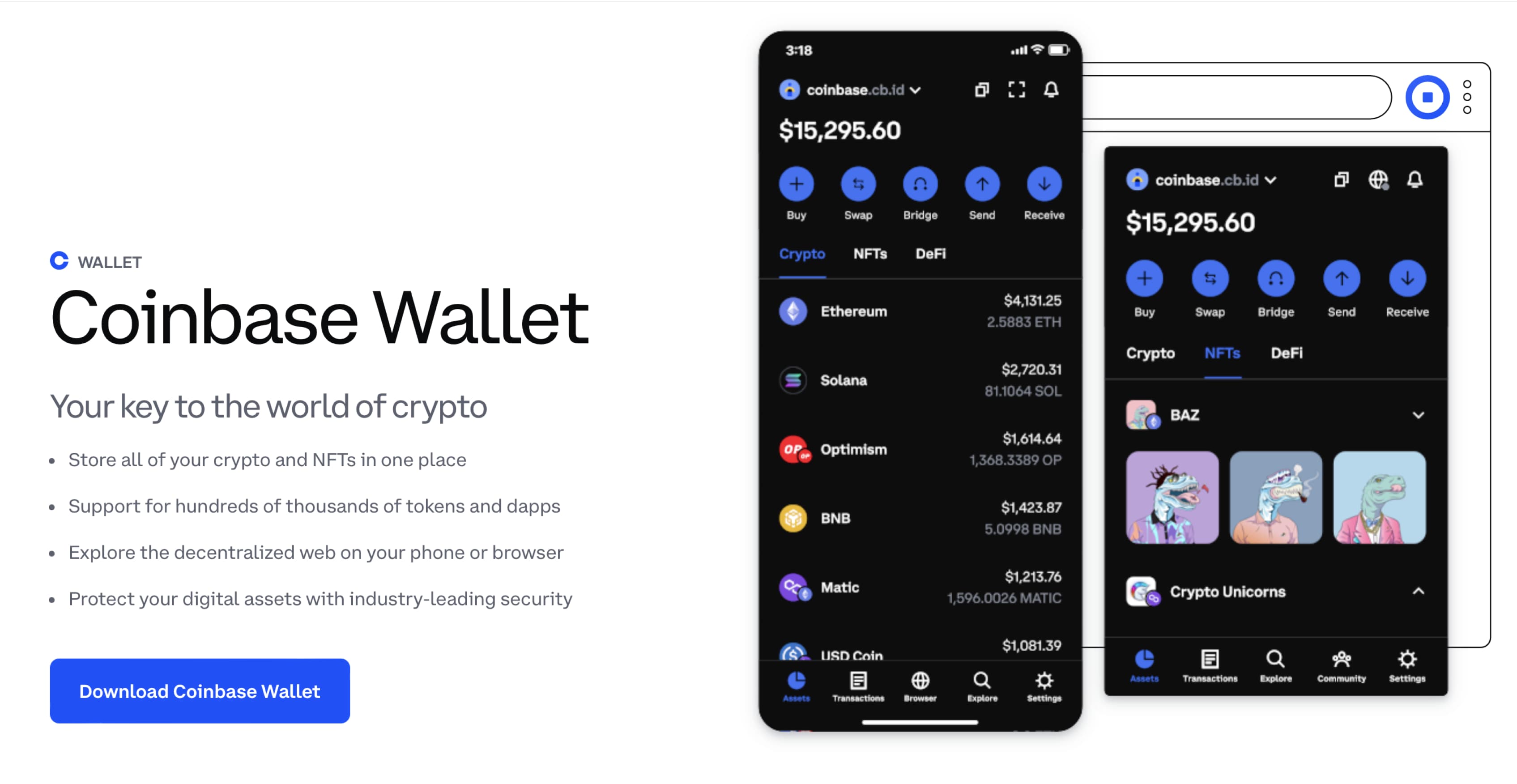It is very important to choose the right place to store your cryptocurrency savings, especially in light of the fact that scammers do not sleep and often create entire services offering to make the best crypto wallets.
Currencies are not stored on computers or smartphones for security reasons. This is the second reason why it is important to keep the technology as decentralized as possible.
That’s why digital assets exist exclusively in blockchain, a decentralized database of records from a huge number of users who have access to all identical copies of that database.
A Bitcoin wallet is a virtual vault. It is a set of files (or an application) that stores information about bitcoins deposited and sent to the account. The very first Bitcoin wallet appeared at the same time as the cryptocurrency – in 2009. At the time, it was called Bitcoin, but a few years later it was renamed Bitcoin Core. It still exists under that name.
Crypto assets themselves are essentially just data in a blockchain. At the same time, inside crypto wallets, there are private keys from certain locations in the blockchain. And it is the private key that gives full access to crypto-assets
Such a wallet is important for its functions, such as encryption and recording information. If you are interested in cryptocurrencies, you should know how important it is to have a reliable wallet.
But which crypto wallet is best? Check out the best options and choose the one that’s right for you.
What is a crypto wallet?
Once purchased, you need to ensure that your cryptocurrency is stored securely to guarantee protection against hacking and theft. Cryptocurrency is usually stored in cryptocurrency wallets. These are physical devices or online programs used to securely store private and public keys to cryptocurrencies. Some exchanges provide wallet services so that cryptocurrency funds are stored directly by the platform itself, but not all exchanges and brokers provide such services automatically.
How do crypto wallets work?
A cryptocurrency wallet consists of two parts: a public (public) key and a private (private) key. The public key is a wallet identifier (address in the blockchain). It is known to all participants of the system and is transmitted when they want to ask someone to transfer cryptocurrency. The private key is needed to confirm transactions. If you lost it, you can restore it with a side phrase – a sequence of random 12-24 words.
In addition, there are “hot” cryptocurrencies, which are connected to the Internet, and “cold” – they are autonomous and do not have access to the network.
naughtycrypto.io
How to choose a crypto wallet
Factors to Consider When Choosing a Cryptocurrency Wallet:
- Security features;
The security of funds in users’ wallets directly depends on how good the encryption of the private key is and how securely it is “hidden” from prying eyes. One of the main dangers for those who store keys on third-party services is hacker attacks – for example, crypto exchanges have been repeatedly hacked, and Bitcoin owners lost their investments forever.
If you use a custodial wallet, be sure to do your due diligence and make sure that the company to which you are entrusting your funds to is reliable. If you choose a hardware wallet, the cryptocurrency is completely in your hands and therefore you are solely responsible for its safety.
- Ease of use;
Some storage methods may not be suitable, for example, a day trader who needs instant access to funds, or a novice user who has no experience in storing their own private key.
If you’re using two-factor authentication (2FA) – which we highly recommend enabling – make sure you don’t lose access to your authentication method.
- Supported cryptocurrencies;
Because there are so many cryptocurrencies available on the market, check which tokens your wallet supports and make sure you can deposit and withdraw the coins you own or want to trade.
- Customer support;
Another crucial factor to consider when choosing a type of cryptocurrency wallet is the ability to control your funds. Solutions such as hardware and software wallets give you full control over your private keys, while exchanges, for example, store those keys for you.
If you’re willing to manage your own cryptocurrency, choose the option where you keep your private keys. If convenience and accessibility are more important to you, you can use a trusted exchange.
- Cost;
Buy cryptocurrencies at the best prices in the online store. Check out all the options and choose the most affordable one for you!
Types of Cryptocurrency Wallets
Here are the Best rating of Cryptocurrency Wallets Available in the Market:
Hardware Wallets
These are physical devices, similar to flash drives. In most cases, equipped with small displays for displaying key data. They work when connected to PCs or laptops. One of the most secure options for disposing of cryptocurrency. Examples: Trezor, Ledger Nano S;
Ledger NanoX
This is also a non-custodial cold hardware wallet, which is very similar to Trezor. It supports most cryptocurrencies. To activate the Ledger wallet, you will need to download a special application (called Ledger Live) and write a seed phrase. There is a mobile app for such a model of cryptocurrency wallet as Ledger Nano-X.
Trezor
Trezor is a cold storage wallet that secures all of the cryptocurrency assets that you keep in your wallet. The platform is known for providing top-notch security services and supporting many different coins. Moreover, it also has a great customer service system.
Trezor is one of the most secure wallets out there. It provides two-factor authentication and ensures that no transactions are performed without verifying the PIN. What’s more, no one can restore the wallet after it’s broken.
Remember that hardware wallets do not offer a one hundred percent guarantee of data protection. If your device is stolen, intruders could theoretically hack it and gain access to your keys. So keep it safe.
Desktop Wallets
Programs that are installed on the device. Most of them are functional, productive, and can support different variants of coins. Private Access keys are stored on this device. If lost, they cannot be recovered: the developers of the wallets absolve themselves of this responsibility. Examples: Exodus, Jaxx;
Atomic
Atomic Wallet offers customers more than 300 tokens and cryptocurrencies for trading and powerful support.
A key feature of this wallet is the Atomic Swaps feature, which allows DeFi exchanges. The wallet supports cryptocurrencies such as Bitcoin and Ethereum and is a suitable platform for novice traders.
Atomic is a well-protected platform. It is a non-custodial wallet that gives the owner full control over their currency and tokens. In addition, the platform has a secure interface that even a novice trader can figure out.
Exodus
This is a desktop and mobile hot wallet that is completely free. Exodus Wallet supports over 180 currencies and is one of the most convenient wallets. It is quite affordable and suitable for use by beginners and professionals alike. It is not as secure as a cold wallet, but still, it is very reliable.
Exodus is non-custodial, so the company has no access to your wallet. In addition, the wallet gives you the option to connect with two-factor authentication, which makes your account more secure.

Bitcoin Core
Bitcoin Core is a Bitcoin wallet management software for the Bitcoin network. It is released by the developers of the blockchain itself. This gives customers confidence that BTC is stored securely. One of the advantages of Bitcoin Core is the ability to become familiar with how the Bitcoin blockchain network works. The software is also open source. Everyone is able to see for themselves the security of the algorithms written by the developers.
Electrum
Electrum Wallet is one of the best Bitcoin wallets. It is one of the oldest Bitcoin wallets available on the market.
The platform is compatible with Mac (iPhone,iPad) and Windows. It integrates with hardware wallets such as Trezor and Ledger. Electrum is responsible for keeping your assets safe. It also offers features for additional account security, such as two-factor authentication, which reduces the chance of hacking.
The platform provides cold storage capabilities. You can store your private keys offline and only go online for transactions on your assets.
Mobile Wallets
Apps for smartphones and tablets. Convenient, and quite secure (still depends on the security level of the gadget). Private keys are stored on the device. There is a theoretical risk that the person who stole the gadget can get access to the wallet. Therefore, it is necessary to use biometric access, and a pin code. Examples of cryptocurrencies: Coinomi, Edge;
Samourai Wallet
Samourai Wallet is the most functional and advanced Bitcoin wallet available on Android. This wallet combines a large number of extremely useful features in one device. wallet.
The basic features of the Samourai mobile wallet are ideal for beginners, while the advanced features are very much to the liking of purists. Indeed, the Samourai Wallet interface is simple and pleasant. To Samourai Wallet we should add a peer-to-peer exchange wallet platform and support for hardware wallets.


Atomic Wallet
While finding a high-quality wallet can be a daunting task, Atomic Wallet aims to make it easier for you. Atomic cryptocurrency wallet has many different aspects that all crypto-enthusiasts will surely appreciate.
Atomic Wallet reviews will tell you that it is a cryptocurrency storage software platform with a built-in exchanger that allows you to trade and exchange your cryptocurrency directly from the wallet. The wallet supports over 300 different cryptocurrencies and is very simple and easy for beginners.
Muun Wallet
Muun Wallet is a non-custodial cryptocurrency wallet for Bitcoin. It allows you to store, receive and send VTCs using state-of-the-art Lighting Network technology, which provides lightning-fast and low-cost transfers.
Muun Wallet allows you to make payments with low fees.
The wallet keeps the cryptocurrency offline. No one, including the developer, has access to user assets. The wallet is multi-signature protected – to spend money, you need 2 keys, and only one of them is in the phone.
Web Wallets
In fact – standard sites with access to a private account by username and password. You can use any device with an Internet connection. The most insecure version of a wallet for cryptocurrency. But it is convenient enough. Suitable for the disposal of small amounts. Examples: Blockchain.com, Coinbase;
Coinbase wallet
Coinbase Wallet is the perfect cryptocurrency storage software that helps you store all your cryptocurrencies and NFTs in one place. It is a decentralized wallet that protects all your assets with industry-leading security policies. While it does not support Bitcoin storage, it does support many other digital assets.


It offers two-factor authentication, and it implements a multi-signature policy to ensure that no one but you can access your account. Since Coinbase exchange supports it, you can also trust the wallet in its authenticity.
MetaMask
Another non-custodial hot wallet that is trusted by users. It can be installed as permission in your browser or downloaded as a mobile app. Metamask can be integrated with many services that are related to the crypto industry. It can also be connected to Trezor and Ledger cold wallets. In general, the Metamask wallet is very similar to Trust Wallet in use. The main difference is that Metamask does not support all cryptocurrencies, it works with the Ethereum network and, accordingly, with all tokens based on it, as well as Binance Smart Chain, Polygon Network (Matic), Optimism Ethereum, etc.
These wallets are more suitable for short-term storage of cryptocurrency — so that it can be easily and freely transferred. For example, a Bitcoin wallet with withdrawal to a card belongs to these wallets, because it is impossible to transfer funds directly from cold storage.
Conclusion
Cryptocurrency wallets are an essential part of life for those who use Bitcoin and other cryptocurrencies. They are one of the main elements of the infrastructure and allow you to send/receive funds via blockchain networks. Each type of wallet has its own advantages and disadvantages, so it is important to understand how they work before using them.
New types of wallets regularly appear on the cryptocurrency market and existing ones are steadily developing. It is worth choosing decentralized options so you don’t have to worry about the safety of your funds. And one should not forget about personal responsibility for passwords, access keys, and interaction with other blockchain participants.

